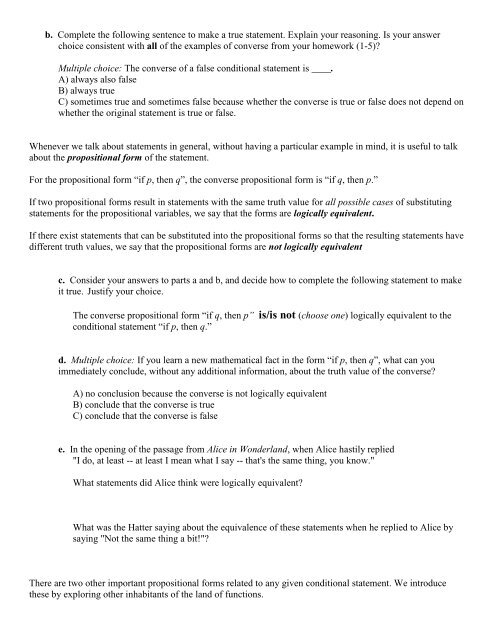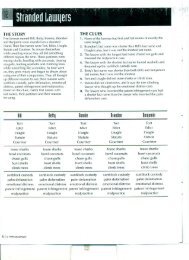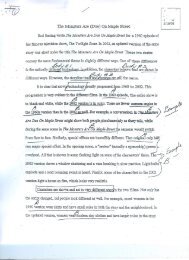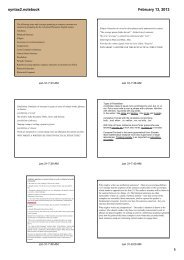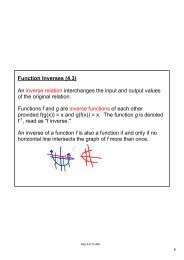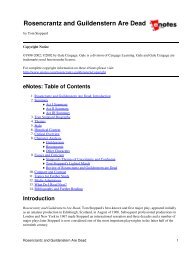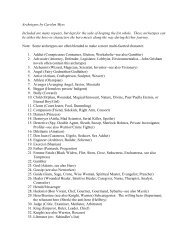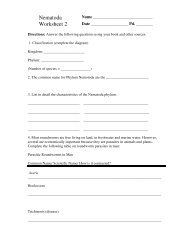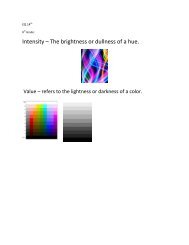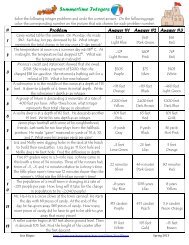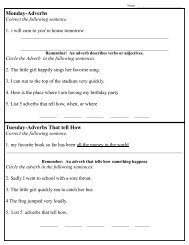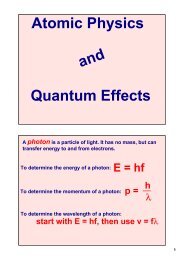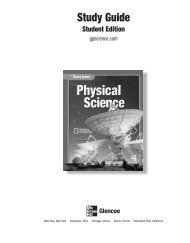Conditional Statement Converse Inverse Contrapositive Hypothesis ...
Conditional Statement Converse Inverse Contrapositive Hypothesis ...
Conditional Statement Converse Inverse Contrapositive Hypothesis ...
Create successful ePaper yourself
Turn your PDF publications into a flip-book with our unique Google optimized e-Paper software.
. Complete the following sentence to make a true statement. Explain your reasoning. Is your answer<br />
choice consistent with all of the examples of converse from your homework (1-5)?<br />
Multiple choice: The converse of a false conditional statement is ____.<br />
A) always also false<br />
B) always true<br />
C) sometimes true and sometimes false because whether the converse is true or false does not depend on<br />
whether the original statement is true or false.<br />
Whenever we talk about statements in general, without having a particular example in mind, it is useful to talk<br />
about the propositional form of the statement.<br />
For the propositional form “if p, then q”, the converse propositional form is “if q, then p.”<br />
If two propositional forms result in statements with the same truth value for all possible cases of substituting<br />
statements for the propositional variables, we say that the forms are logically equivalent.<br />
If there exist statements that can be substituted into the propositional forms so that the resulting statements have<br />
different truth values, we say that the propositional forms are not logically equivalent<br />
c. Consider your answers to parts a and b, and decide how to complete the following statement to make<br />
it true. Justify your choice.<br />
The converse propositional form “if q, then p” is/is not (choose one) logically equivalent to the<br />
conditional statement “if p, then q.”<br />
d. Multiple choice: If you learn a new mathematical fact in the form “if p, then q”, what can you<br />
immediately conclude, without any additional information, about the truth value of the converse?<br />
A) no conclusion because the converse is not logically equivalent<br />
B) conclude that the converse is true<br />
C) conclude that the converse is false<br />
e. In the opening of the passage from Alice in Wonderland, when Alice hastily replied<br />
"I do, at least -- at least I mean what I say -- that's the same thing, you know."<br />
What statements did Alice think were logically equivalent?<br />
What was the Hatter saying about the equivalence of these statements when he replied to Alice by<br />
saying "Not the same thing a bit!"?<br />
There are two other important propositional forms related to any given conditional statement. We introduce<br />
these by exploring other inhabitants of the land of functions.


